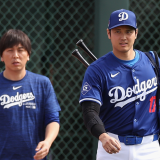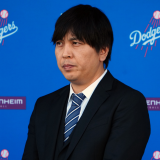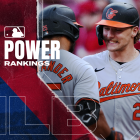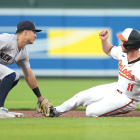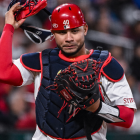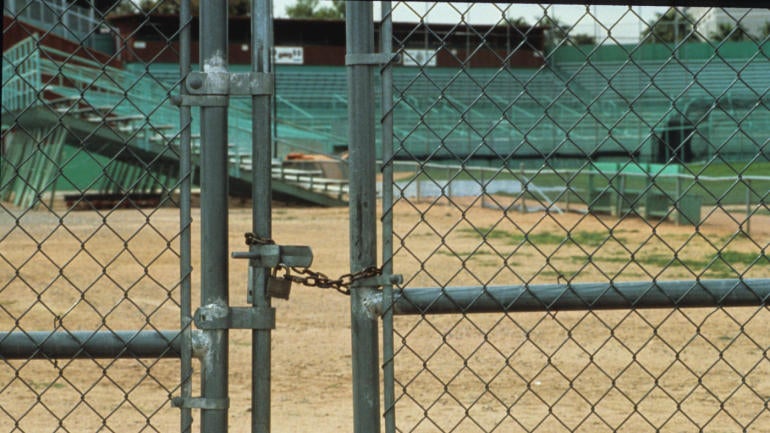
At some point soon Major League Baseball and the MLB Players' Association will get back to the table and continuing working toward a new collective bargaining agreement. The first two regular season series have already been lost to the owner-initiated lockout. At 93 days and counting, this is the second longest work stoppage in baseball history behind the 1994-95 players' strike (232 days).
Whenever the two sides resume bargaining, MLB is sure to propose an international draft, which they've sought for years (decades, really) and included in their latest proposal. The union continues to oppose an international draft. Players outside the United States, Canada, and Puerto Rico are exempt from the amateur draft and can sign with teams as free agents once they turn 16.
In the past teams could spend freely on international players. Then, as part of the 2012-16 CBA, teams were given an international bonus pool that acted as a soft cap. Clubs that exceeded their pool had to pay a tax on the overage. Several teams, most notably the Yankees and Padres, made a mockery of the system and spent way over their bonus pools, leading to MLB adopting a hard cap for international spending in the 2017-21 CBA. Bonus pools are in the $4 million to $6 million range each year.
"The International Draft would have more fairly allocated talent among the clubs and reduced abuses in some international markets," commissioner Rob Manfred said Tuesday, during his press conference announcing regular season games will be canceled.
The abuses Manfred mentioned are most prominent in Latin America and they exist because MLB does not enforce its own rules. Although players can not officially sign until they are 16, many enter into verbal agreements as young as 13 or 14 years old. USA Today's Christian Red and Teri Thompson reported on conditions in Latin America in June 2020:
According to (scout Rudy) Santin, in addition to others with knowledge of the deals, some of whom asked not to be identified for fear of reprisal from Major League Baseball, teams enter into verbal agreements with players so they can keep them away from competitors and then slash the value of those deals or even abandon them altogether, leaving players without options and their families in debt to shady lenders who have charged exorbitant interest rates on loans based on the future earnings.
...
The wild-west culture that has defined Dominican baseball — steroids and performance-enhancing drugs obtained legally, age and ID fraud, kickback scandals involving team scouts — has plagued MLB for years, but the issue of underage signings has intensified in recent months in part because the commissioner's office has signaled that it won't enforce its rules prohibiting these backdoor agreements, according to multiple baseball officials who spoke on the condition of anonymity because they are involved in the transactions.
MLB has shown the ability and willingness to crack down on improprieties in the international market, but only when they damage the league or one of the 30 teams, not the players themselves. In 2006, the Nationals gave who they believed was 16-year-old Esmailyn "Smiley" Gonzalez a $1.4 million signing bonus only to learn he was really 20-year-old Carlos David Alvarez Lugo. Soon thereafter MLB cracked down on identity fraud among Latin America prospects.
In recent years MLB has punished the Red Sox and Braves (including banning former Braves GM John Coppolella for life) for gaming the international market and giving players too much money. That's a common theme for MLB. Teams are punished when they spend too much (through the competitive balance tax, free agent compensation, etc.), but not when they tank or otherwise act in anti-competitive ways. MLB has the ability to crack down on these abuses in the international market. It just doesn't.
Which makes Manfred's claim that an international draft is intended to reduce abuses ring hollow. "We want to stop these abuses and the solution is a cost-saving draft," is the league's stated position. That's all an international draft is: a way to cut costs. Right now international players are free to negotiate with any team, but with a draft, they would only be able to negotiate with the team that selects them, eliminating their leverage.
If MLB were serious about eliminating abuses in Latin America, the league would enforce its own rules and actually do it, not try to leverage them into a cost-saving mechanism. MLB has had ample time to show they care about protecting international players and they haven't done it. The abuses are similar to service time manipulation in that they don't require a collectively bargained solution. The league can fix the problem simply by doing what's right.
There is a conversation to be had about how an international draft could improve competitive balance, sure. But MLB turning a blind eye to abuses in the international market for years and years only to claim it wants an international draft to improve conditions is at best disingenuous and at worst a gross abuse of power in which minors are manipulated and exploited. It's another reminder there is nothing the league won't attempt to leverage into better margins.








